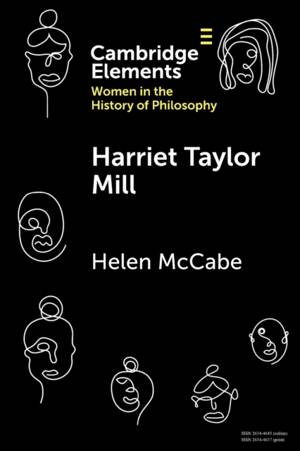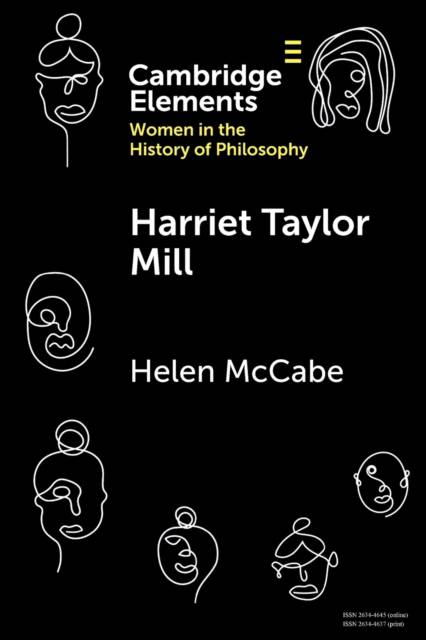
Door een staking bij bpost kan je online bestelling op dit moment iets langer onderweg zijn dan voorzien. Dringend iets nodig? Onze winkels ontvangen jou met open armen!
- Afhalen na 1 uur in een winkel met voorraad
- Gratis thuislevering in België vanaf € 30
- Ruim aanbod met 7 miljoen producten
Door een staking bij bpost kan je online bestelling op dit moment iets langer onderweg zijn dan voorzien. Dringend iets nodig? Onze winkels ontvangen jou met open armen!
- Afhalen na 1 uur in een winkel met voorraad
- Gratis thuislevering in België vanaf € 30
- Ruim aanbod met 7 miljoen producten
Zoeken
Omschrijving
Harriet Taylor Mill is an overlooked figure in the history of political philosophy, ethics, economics and politics, over-shadowed by the fame of her writing partner, and eventual husband, John Stuart Mill. Given that they met at a very early age (when Taylor Mill was twenty-two), and wrote together for over a quarter of a century, it can be hard to distinguish what is 'hers' and what is 'his'. Indeed, maybe we should consider much of Mill's canon as being 'theirs'. Taylor Mill inputted into some extremely famous works, including On Liberty, and her thought, impact and legacy are well worth charting. This Element explores her contribution to political theory; ethics; political economy; and political reform. It draws on close textual analysis of 'her' works and those of Mill (including manuscripts unpublished in her lifetime, and correspondence), as well as interrogating his description of their co-authoring relationship.
Specificaties
Betrokkenen
- Auteur(s):
- Uitgeverij:
Inhoud
- Aantal bladzijden:
- 75
- Taal:
- Engels
- Reeks:
Eigenschappen
- Productcode (EAN):
- 9781009156837
- Verschijningsdatum:
- 23/02/2023
- Uitvoering:
- Paperback
- Formaat:
- Trade paperback (VS)
- Afmetingen:
- 152 mm x 229 mm
- Gewicht:
- 117 g

Alleen bij Standaard Boekhandel
+ 63 punten op je klantenkaart van Standaard Boekhandel
Beoordelingen
We publiceren alleen reviews die voldoen aan de voorwaarden voor reviews. Bekijk onze voorwaarden voor reviews.











